
Riga: The Heartbeat of the Baltics
Riga, the capital of Latvia, is a stunning blend of history, culture, and modernity. Nestled on the shores of the Daugava River, this enchanting city boasts a beautifully preserved Old Town, a UNESCO World Heritage Site, where cobblestone streets wind through medieval buildings, charming squares, and ancient churches. The iconic House of the Blackheads and the towering St. Peter's Church are just a few of the architectural marvels that await you. Beyond its historical core, Riga is known for its vibrant arts scene. The Art Nouveau district is a must-see, with over 800 buildings showcasing this unique architectural style. Wander through the streets and marvel at the intricate facades, each telling its own story. The city's museums, such as the Latvian National Museum of Art and the Museum of the Occupation of Latvia, offer deep dives into the nation's rich and complex history. Riga's culinary scene is equally impressive, offering everything from traditional Latvian dishes to contemporary gourmet cuisine. Be sure to visit the Central Market, one of Europe's largest, where you can sample local delicacies and soak in the bustling atmosphere. As the sun sets, Riga transforms into a lively nightlife hub with stylish bars, cozy cafes, and vibrant clubs, ensuring that the fun continues well into the night.
Local tips in Riga
- Visit the Central Market in the morning to experience it at its liveliest and get the freshest local produce.
- Take a guided walking tour of the Old Town to uncover hidden gems and learn about the city's history from a local expert.
- Use public transport or rent a bike to explore more of the city; Riga is very bike-friendly.
- Don't miss the sunset views from the top of St. Peter's Church for a breathtaking panorama of the city.
- Try the local Latvian beer and traditional dishes like grey peas with bacon at a local tavern.
Neighbourhoods in Riga
Riga: The Heartbeat of the Baltics
Riga, the capital of Latvia, is a stunning blend of history, culture, and modernity. Nestled on the shores of the Daugava River, this enchanting city boasts a beautifully preserved Old Town, a UNESCO World Heritage Site, where cobblestone streets wind through medieval buildings, charming squares, and ancient churches. The iconic House of the Blackheads and the towering St. Peter's Church are just a few of the architectural marvels that await you. Beyond its historical core, Riga is known for its vibrant arts scene. The Art Nouveau district is a must-see, with over 800 buildings showcasing this unique architectural style. Wander through the streets and marvel at the intricate facades, each telling its own story. The city's museums, such as the Latvian National Museum of Art and the Museum of the Occupation of Latvia, offer deep dives into the nation's rich and complex history. Riga's culinary scene is equally impressive, offering everything from traditional Latvian dishes to contemporary gourmet cuisine. Be sure to visit the Central Market, one of Europe's largest, where you can sample local delicacies and soak in the bustling atmosphere. As the sun sets, Riga transforms into a lively nightlife hub with stylish bars, cozy cafes, and vibrant clubs, ensuring that the fun continues well into the night.
When is the best time to go to Riga?
Iconic landmarks you can’t miss
Riga Central Market
Explore Riga Central Market: A UNESCO site housed in Zeppelin hangars, offering local flavors & a vibrant cultural experience.
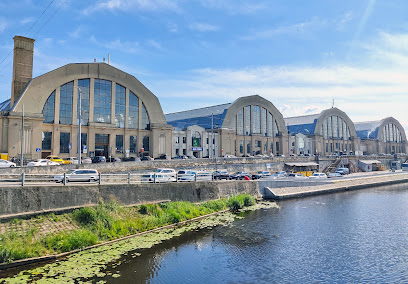
The Freedom Monument
Explore the Freedom Monument in Riga, a stunning tribute to Latvia's independence surrounded by beautiful gardens, steeped in history and cultural significance.
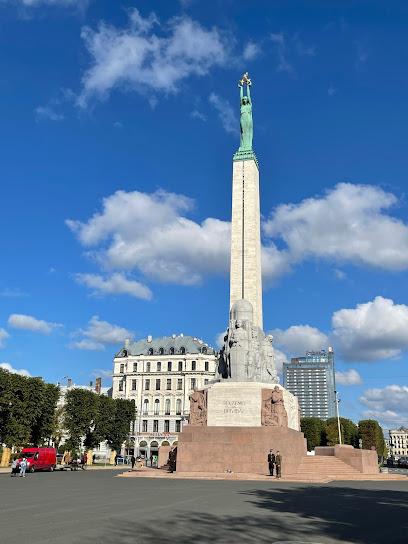
House of the Black Heads
Explore Riga's iconic House of the Black Heads: a symbol of history, architecture, and cultural heritage in the heart of Old Town.
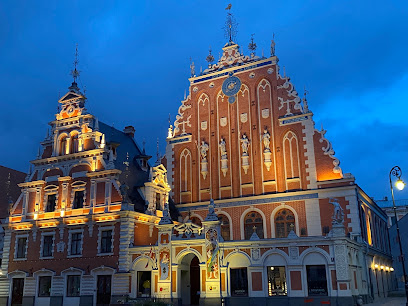
Esplanāde
Discover Esplanāde, Riga's central park: a blend of history, culture, and natural beauty in the heart of the city.
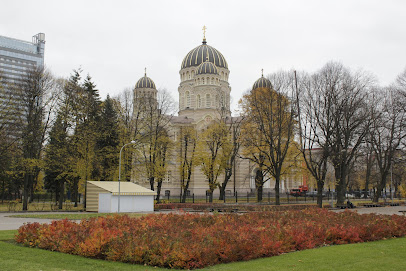
Bastejkalna Park
Escape to Riga's Bastejkalna Park: A historic green oasis with scenic canals, monuments, and peaceful pathways in the heart of the city.
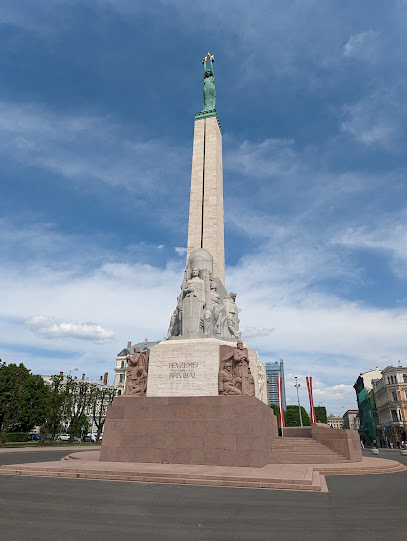
St. Peter's Church
Explore Riga's iconic St. Peter's Church: a medieval architectural masterpiece with breathtaking panoramic city views from its historic tower.
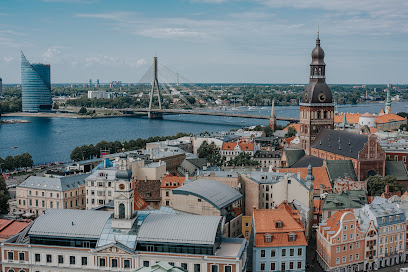
Riga Cathedral
Explore Riga Cathedral, the largest medieval church in the Baltics, showcasing a blend of architectural styles and a world-renowned organ.
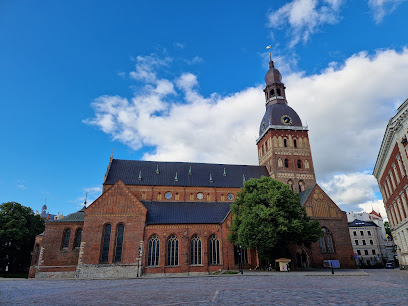
VEF Culture Palace
Experience Riga's vibrant arts scene at the VEF Culture Palace, a historic landmark hosting concerts, exhibitions, and cultural events.
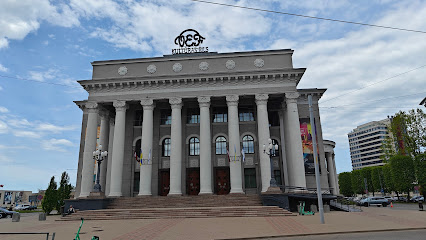
Kronvalda Park
Escape to Riga's heart: Discover lush landscapes, rich history, and tranquil beauty at Kronvalda Park, a serene urban oasis.
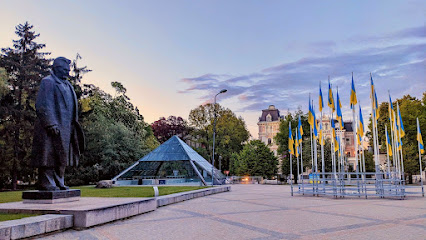
Riga Castle
Explore Riga Castle: A historic landmark and the official residence of the President of Latvia, showcasing centuries of Latvian history and architecture.
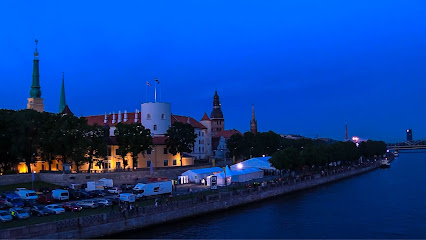
Three Brothers, Latvian Museum of Architecture
Explore Riga's oldest residential complex, a trio of medieval houses showcasing the city's architectural evolution, now home to the Latvian Museum of Architecture.
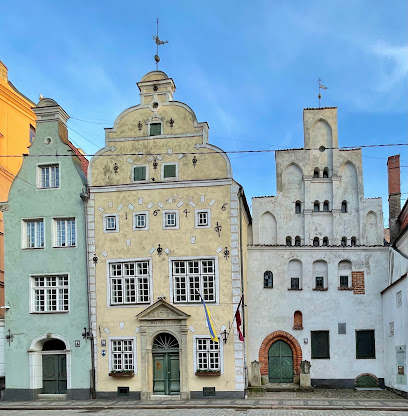
Latvian War Museum
Explore Latvia's military history within the walls of a medieval tower in Riga's Old Town. Free admission!

Latvian Academy of Sciences Observation deck
Experience the breathtaking views of Riga from the Latvian Academy of Sciences Observation Deck, where history meets stunning landscapes.
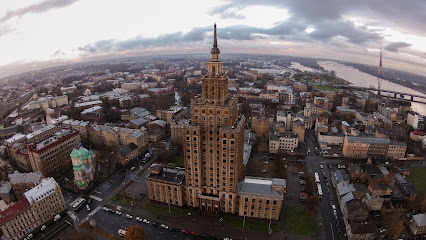
The Corner House
Explore Riga's Corner House: Uncover the chilling history of the KGB headquarters and Soviet oppression in Latvia.
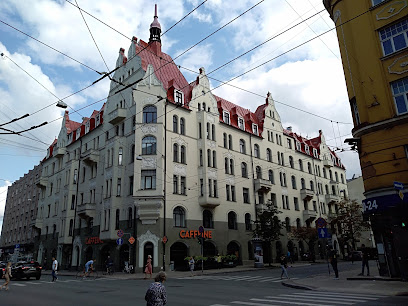
Cat House
A whimsical architectural landmark in Riga's Old Town, featuring mischievous cat sculptures with a legendary tale of defiance.
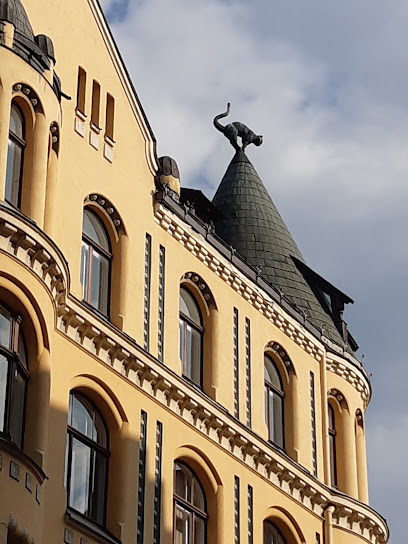
Unmissable attractions to see
Dzintari Forest Park
Explore the natural beauty and artistic charm of Dzintari Forest Park in Jūrmala, Latvia, a perfect haven for relaxation and outdoor activities.
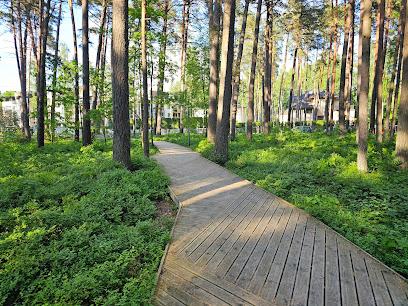
Riga Motor Museum
Explore the rich history of automobiles at the Riga Motor Museum, where innovation meets tradition in Latvia's premier automotive attraction.
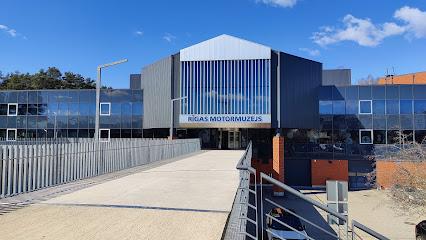
House of the Black Heads
Explore the House of the Black Heads, an architectural masterpiece in Riga that showcases Latvia's rich history and vibrant culture.
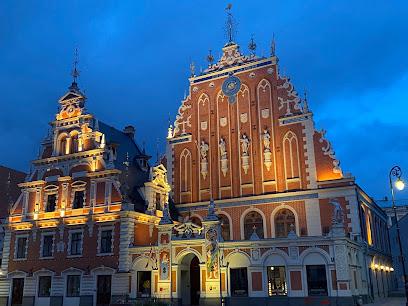
Bastejkalna Park
Experience the beauty and tranquility of Bastejkalna Park, a lush urban oasis in the heart of Riga, perfect for relaxation and cultural exploration.
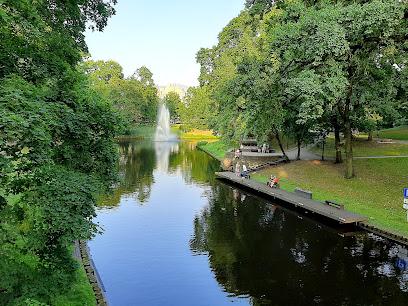
Dzintari Concert Hall
Experience the cultural richness of Latvia at Dzintari Concert Hall, a premier venue for unforgettable performances in the heart of Jūrmala.
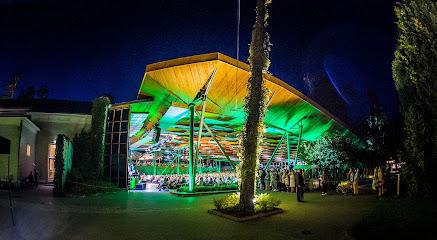
Latvian National Opera
Experience the artistic brilliance of the Latvian National Opera, a cultural gem in the heart of Riga offering captivating performances in a stunning setting.
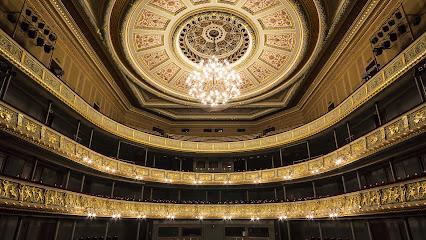
St. Peter's Church
Discover the breathtaking Gothic architecture and rich history of St. Peter's Church, a must-see tourist attraction in the heart of Riga, Latvia.
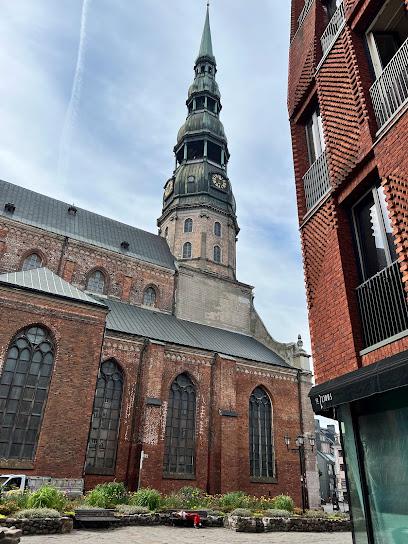
Riga Cathedral
Discover the architectural beauty and historical significance of Riga Cathedral, a must-see landmark in Latvia's capital, where history meets art.
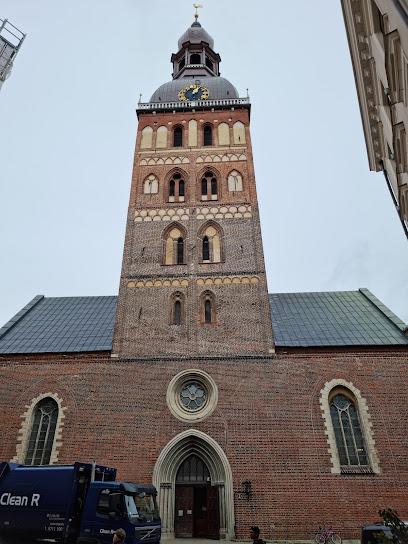
Kronvalda Park
Explore the lush landscapes and serene atmosphere of Kronvalda Park, a tranquil oasis in the heart of Riga, Latvia's capital city.
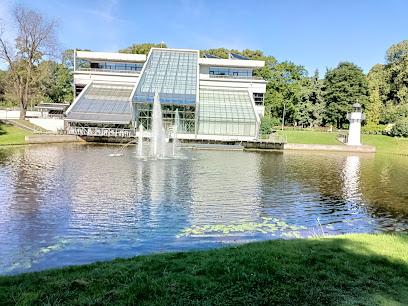
The Ethnographic Open-Air Museum of Latvia
Explore the Ethnographic Open-Air Museum of Latvia, a vibrant showcase of traditional life, architecture, and culture amidst breathtaking natural beauty.
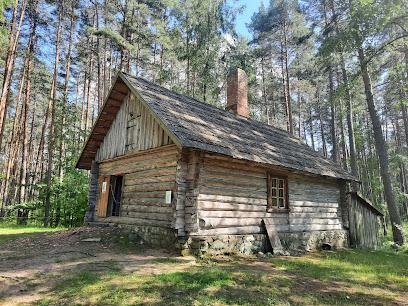
Latvian National Museum of Art
Explore the Latvian National Museum of Art in Riga, where centuries of creativity and cultural history come alive in stunning exhibitions.
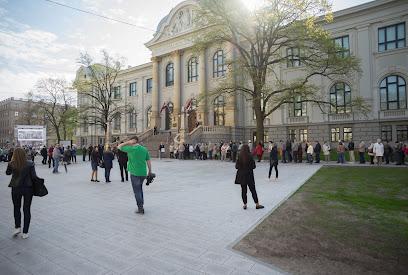
Riga Castle
Explore the historic Riga Castle, a stunning blend of architectural styles and cultural heritage in the heart of Latvia's capital.
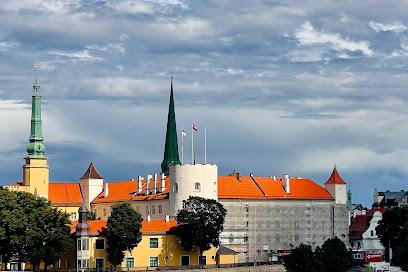
Three Brothers, Latvian Museum of Architecture
Explore the Three Brothers in Riga, a stunning architectural trio showcasing Latvia's rich history and cultural heritage.
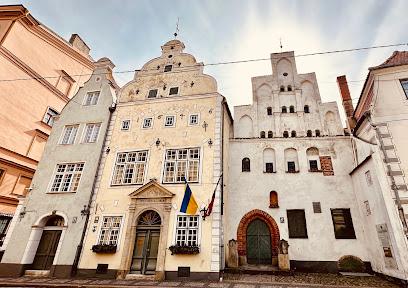
Latvian National Theatre
Experience the beauty of Latvian culture at the National Theatre in Riga, showcasing captivating performances in a stunning architectural setting.
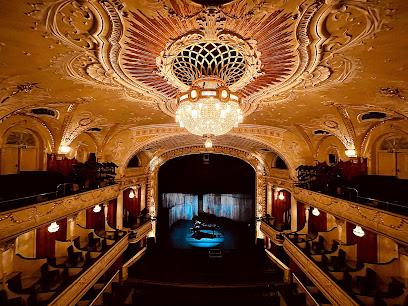
Latvian War Museum
Discover the poignant history of Latvia at the Latvian War Museum, an essential stop for any traveler seeking to understand the nation's past.
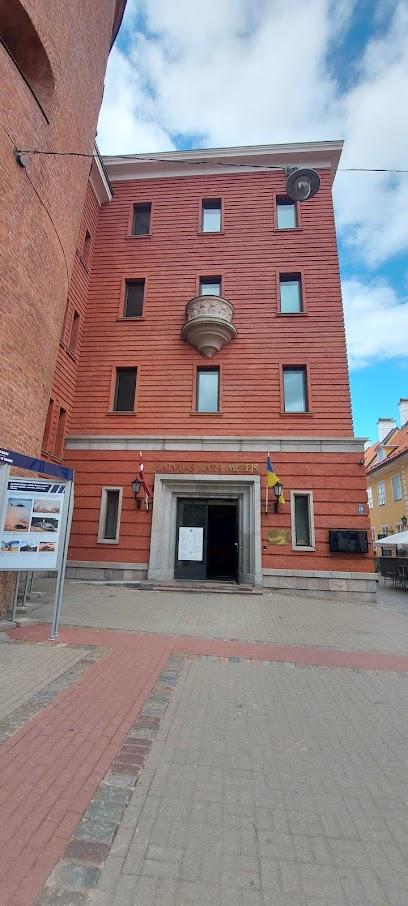
Essential places to dine
LIDO Vērmanītis
Experience authentic Latvian flavors at LIDO Vērmanītis, where tradition meets modern bistro dining in the heart of Riga.
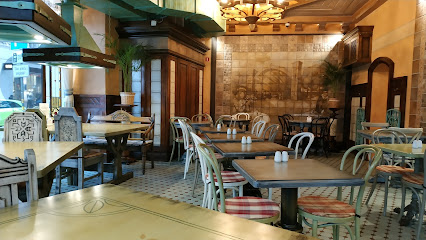
Ala Pagrabs
Discover Ala Pagrabs in Riga: A vibrant restaurant and bar offering authentic Latvian cuisine and local brews in an inviting underground setting.
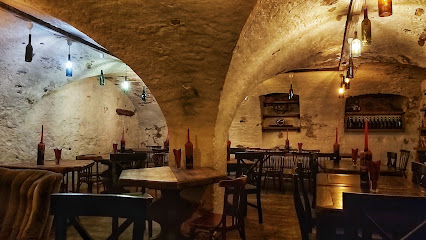
Stargorod Riga - Czech brewery
Discover the essence of Czech brewing at Stargorod Riga - where craft beer meets vibrant live music in an unforgettable atmosphere.
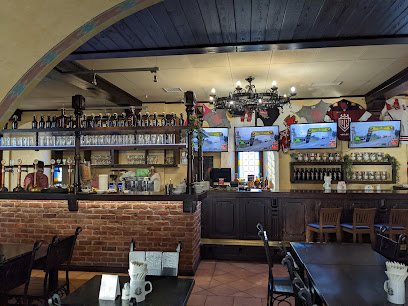
Rozengrāls (Vinarium civitatis rigensis)
Immerse yourself in the medieval charm of Rozengrāls while savoring exquisite Latvian cuisine in the heart of Riga.
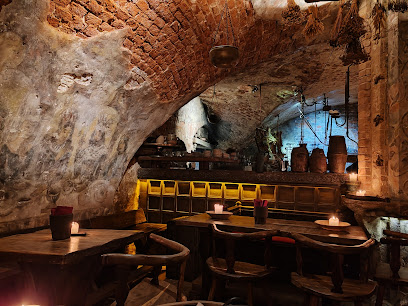
OGLE
Discover the culinary artistry at Ogle in Riga's Central District, where exquisite grilled dishes meet elegant dining.
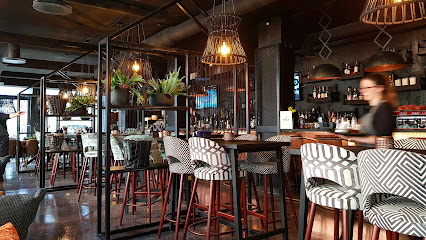
Italissimo
Savor the essence of Italy at Italissimo, Riga's premier destination for authentic Italian cuisine with a cozy ambiance.
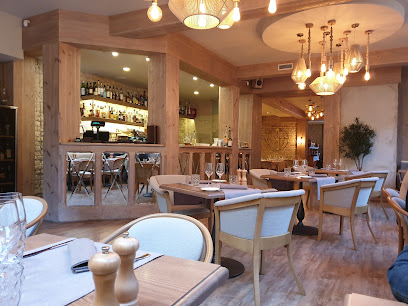
Pētergailis, restorāns
Experience the flavors of Latvia at Pētergailis, where tradition meets modernity in a vibrant dining atmosphere.
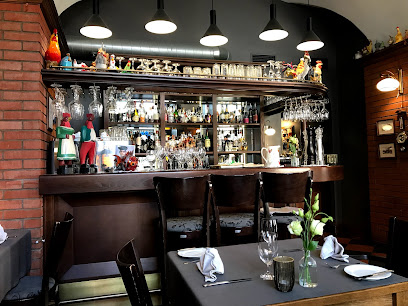
Late Night Munchies
Discover Late Night Munchies in Riga - where delicious burgers meet vibrant nightlife! Perfect for satisfying late-night cravings.
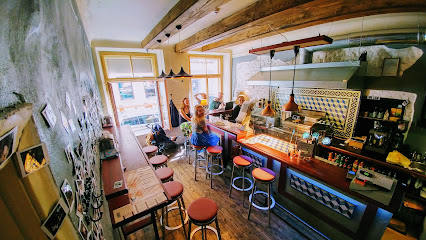
Province restaurant
Discover the flavors of Latvia at Province Restaurant – a family-friendly gem in the heart of Riga offering delicious local cuisine.
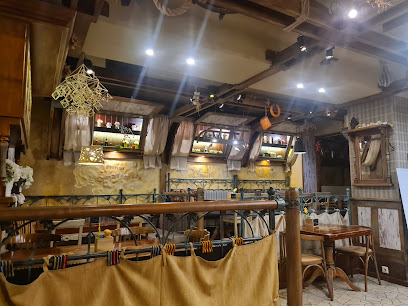
Casa Nostra Italian restaurant
Discover Casa Nostra in Riga: Authentic Italian flavors await in a cozy setting perfect for any dining occasion.
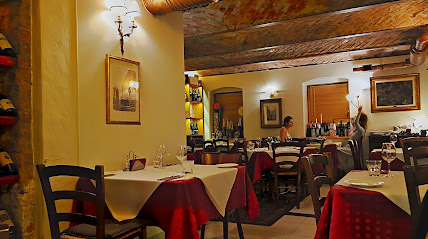
Bon-Vivant the Belgian Beer Cafe
Discover authentic Belgian cuisine and an extensive beer selection at Bon-Vivant the Belgian Beer Cafe in Riga's Central District.
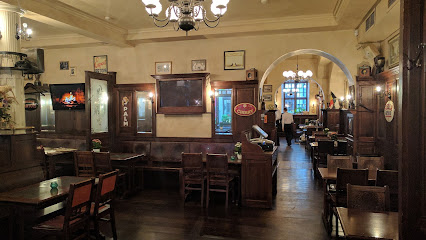
Garage
Experience the unique blend of Latvian flavors and modern cuisine at Garage, one of Riga's must-visit restaurants and bars.
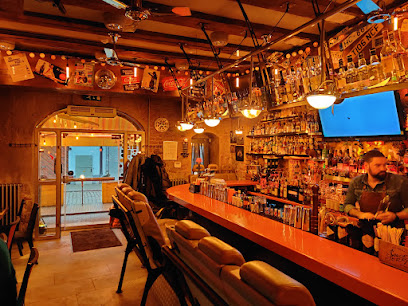
B Bārs Restorāns
Experience exquisite dining at B Bārs Restorāns in Riga - where local flavors meet modern flair in a stylish setting.
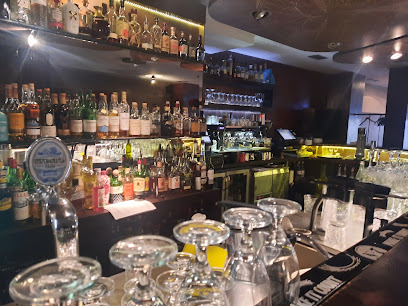
Domini Canes
Experience the best of European cuisine at Domini Canes in Riga - where culinary excellence meets warm hospitality.
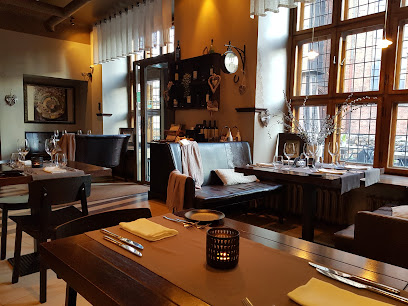
Milda
Discover the heart of Latvian cuisine at Milda in Riga—where tradition meets taste in a charming setting.
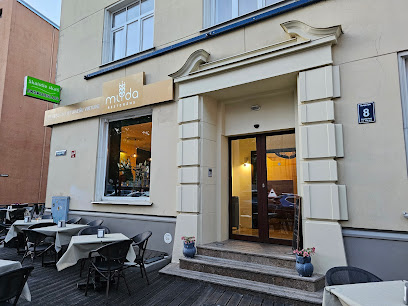
Markets, malls and hidden boutiques
Shopping Center Origo
Explore Shopping Center Origo, a bustling retail paradise in Riga, blending local charm with international flair for an unforgettable shopping experience.
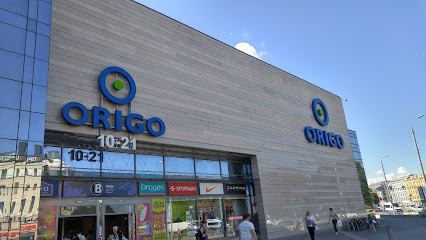
TC Spice
Discover the vibrant TC Spice shopping mall in Riga, Latvia, where shopping meets dining and entertainment for a complete experience.
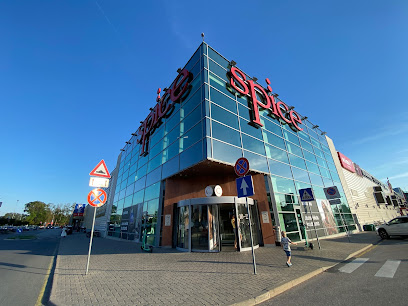
Domina
Discover Domina, Riga's premier shopping mall, where fashion, food, and fun come together for an unforgettable experience.
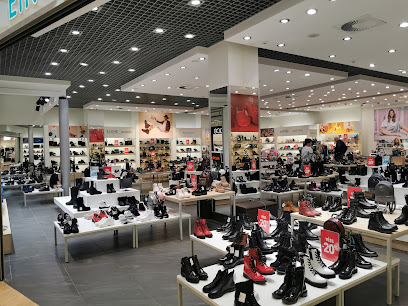
Riga Plaza shopping center
Discover Riga Plaza: Latvia's premier shopping destination with diverse stores, dining, and entertainment options for an unforgettable experience.
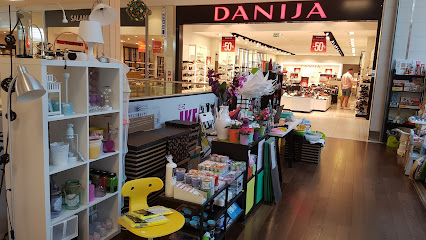
Gallery Centre, Shopping mall
Explore the vibrant Gallery Centre in Riga, the ultimate shopping destination with a variety of brands, dining options, and a lively atmosphere.
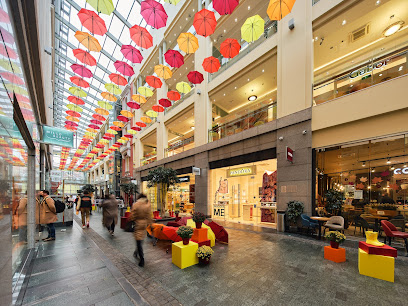
Galleria Riga
Explore Galleria Riga, the ultimate shopping mall in Rīga, combining style, cuisine, and entertainment for an unforgettable experience.
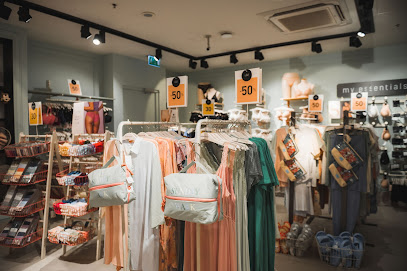
KOKOS apģērbu lielveikals
Explore the vibrant fashion scene at KOKOS apģērbu lielveikals in Riga, featuring stylish clothing for every occasion and taste.
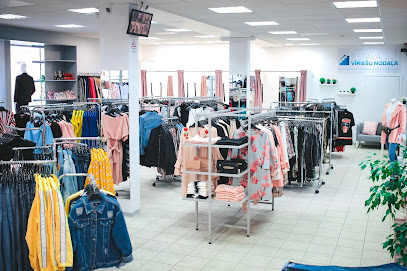
Market Latgale
Explore Market Latgale, a vibrant flea market in Riga, offering unique finds and a taste of local culture with every visit.
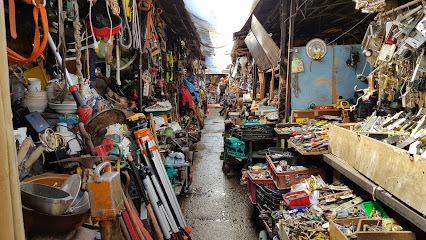
Abakhan
Discover a world of fabrics and crafting supplies at Abakhan, Riga's premier destination for textile lovers and DIY enthusiasts.
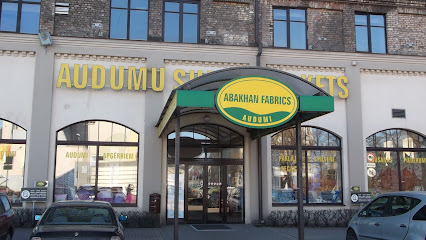
Reserved
Discover trendy fashion at Reserved in Riga, offering stylish clothing for men and women in a modern shopping environment.
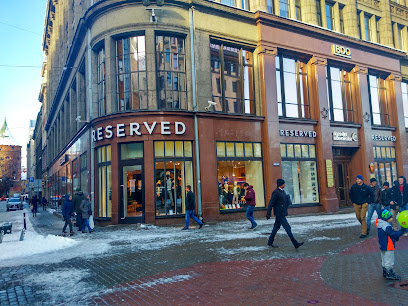
Četras Zoles
Explore Četras Zoles in Riga for an exquisite selection of stylish and comfortable footwear that caters to every taste and occasion.
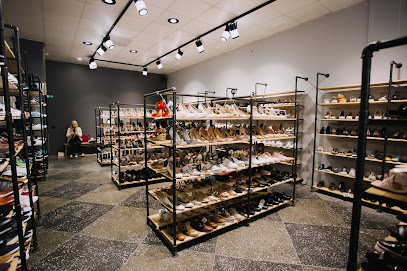
Humana Vintage
Explore the charm of vintage fashion at Humana Vintage in Riga, where unique styles and sustainable shopping come together for a memorable experience.
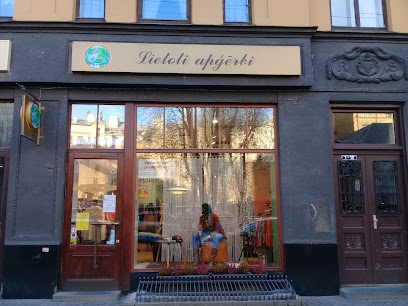
Robert’s Books
Discover your next great read at Robert's Books, a cozy bookstore in Riga, perfect for book lovers and coffee enthusiasts alike.
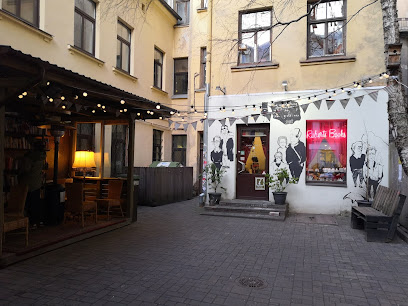
ELKOR Gift Shop suvenīru veikals
Explore ELKOR Gift Shop in Riga for authentic Latvian souvenirs and unique gifts that capture the spirit of Latvia's culture and heritage.
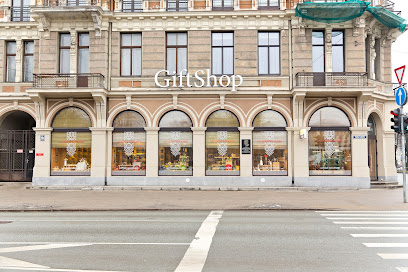
VINYLLA.lv / Plates.lv
Explore the vibrant world of music at VINYLLA.lv / Plates.lv, Riga's premier destination for vinyl records and music memorabilia.
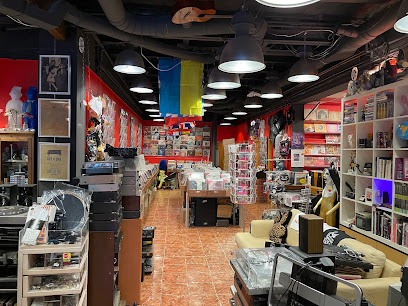
Essential bars & hidden hideouts
Skyline bar
Experience breathtaking views and exquisite cocktails at the Skyline Bar in Riga, where luxury meets the skyline.
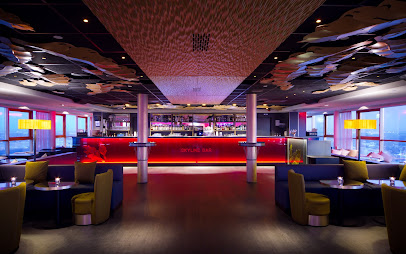
Gastro Pub Duvel's
Savor the flavors of Latvia at Gastro Pub Duvel's, a brewpub in Riga offering craft beers and a delectable menu in a vibrant setting.
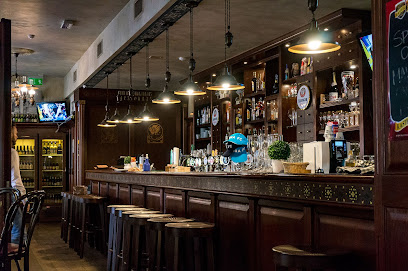
FUNNY FOX SPORTS, KARAOKE PUB/BAR
Discover the ultimate nightlife experience at Funny Fox Sports Karaoke Pub/Bar in Rīga, where karaoke and sports come together in a lively atmosphere.
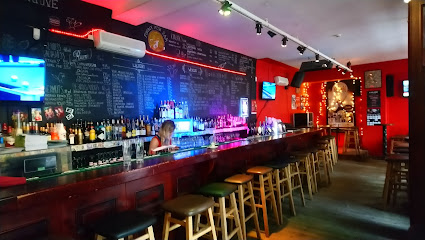
Black Magic
Experience the delightful fusion of artisan chocolates and innovative cocktails at Black Magic in Riga's Central District.
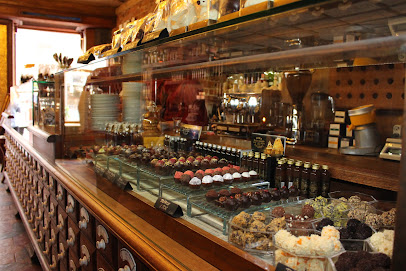
Cuba Cafe
Discover Cuba Cafe in Riga: a vibrant cocktail bar with exquisite drinks, delicious bites, and a lively atmosphere perfect for socializing.
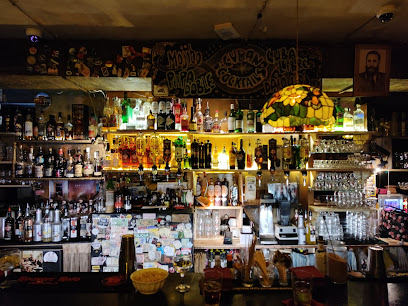
The Armoury Bar
Discover the vibrant atmosphere of The Armoury Bar in Riga, where unique decor meets expertly crafted cocktails for an unforgettable experience.
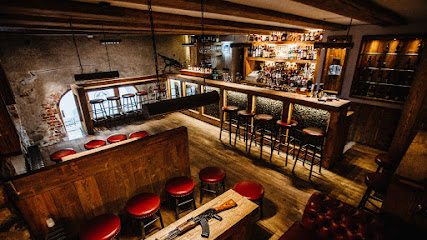
Beer House No.1
Experience the vibrant atmosphere and authentic flavors at Beer House No.1, a must-visit pub and restaurant in the heart of Riga.
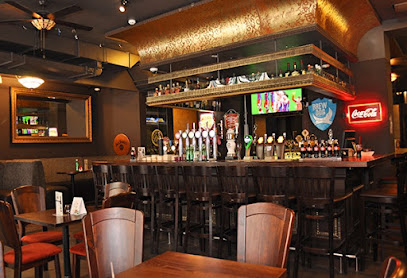
Piana Vyshnia
Experience the vibrant nightlife of Riga at Piana Vyshnia, where exquisite drinks and a lively atmosphere await you.
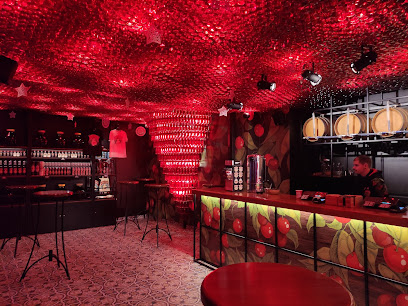
Aleponija
Discover Aleponija, Riga's vibrant bar offering an exceptional selection of drinks and a lively atmosphere perfect for unwinding and socializing.
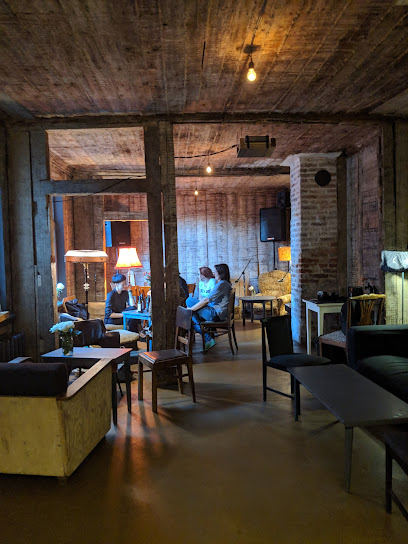
CLOUD NINE
Experience the vibrant nightlife of Riga at Cloud Nine, a cocktail bar offering innovative drinks and a stylish atmosphere in the heart of the city.
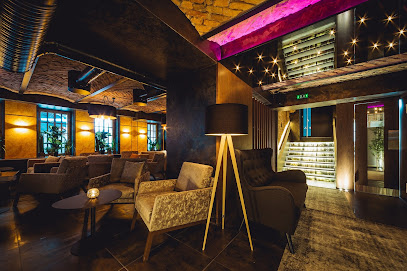
CARTEL Bar
Discover the vibrant nightlife of Riga at CARTEL Bar, where expertly crafted cocktails and a lively atmosphere await every visitor.
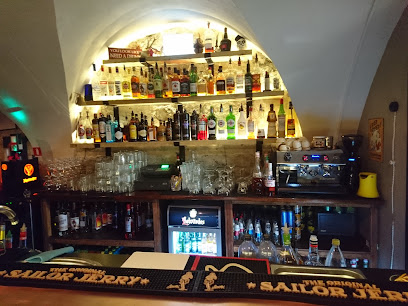
Spot Kafe
Experience unforgettable nightlife at Spot Kafe in Rīga, where cocktails meet dancing in a vibrant atmosphere that celebrates local culture.
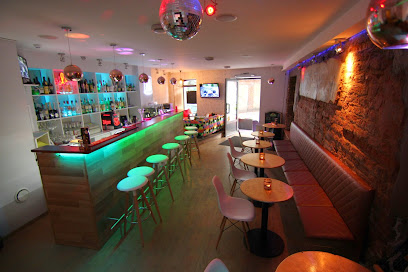
Greenwood bar
Discover the energetic nightlife of Riga at Greenwood Bar, where disco beats and vibrant atmospheres collide in a memorable experience.
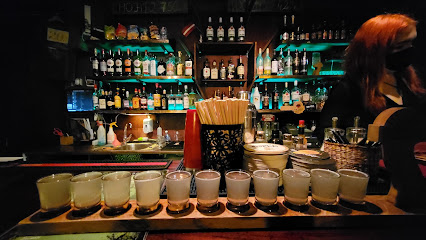
Cynic Bar
Discover Cynic Bar in Riga, a vibrant cocktail haven with unique drinks and a lively atmosphere in the heart of the city.
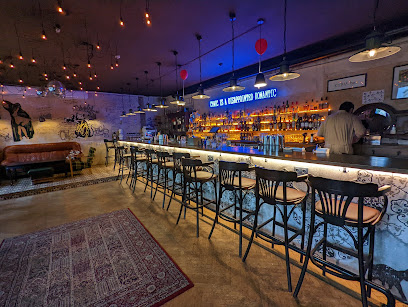
Local Phrases
-
- HelloSveiki
[svay-kee] - GoodbyeUz redzēšanos
[ooz red-zay-sha-nohs] - YesJā
[yah] - NoNē
[nay] - Please/You're welcomeLūdzu
[loo-dzoo] - Thank youPaldies
[pahl-dyehs] - Excuse me/SorryAtvainojiet
[aht-vai-noh-yet] - How are you?Kā jums klājas?
[kaa yooms klaa-yas] - Fine. And you?Labi. Un jūs?
[lah-bee oon yoos] - Do you speak English?Vai jūs runājat angļu valodā?
[vai yoos roo-naa-yat ahng-loo va-loh-daa] - I don't understandEs nesaprotu
[es ne-sah-proh-too]
- HelloSveiki
-
- I'd like to see the menu, pleaseEs vēlētos redzēt ēdienkarti, lūdzu
[es vee-leh-tohs red-zayt ay-dyehn-kahr-tee, loo-dzoo] - I don't eat meatEs neēdu gaļu
[es nee-ay-doo gah-loo] - Cheers!Priekā!
[pree-eh-kaa] - I would like to pay, pleaseEs vēlētos samaksāt, lūdzu
[es vee-leh-tohs sah-mah-ksaat, loo-dzoo]
- I'd like to see the menu, pleaseEs vēlētos redzēt ēdienkarti, lūdzu
-
- Help!Palīdzība!
[pah-lee-dzee-ba] - Go away!Aiziet prom!
[ai-zee-et prohm] - Call the Police!Zvaniet policiju!
[zvah-nyet poh-lee-tsee-yoo] - Call a doctor!Zvaniet ārstu!
[zvah-nyet aar-stoo] - I'm lostEs esmu pazudis/pazudusi
[es es-moo pah-zoo-dees/pah-zoo-doo-see] - I'm illMan ir slikti
[mahn eer slihk-tee]
- Help!Palīdzība!
-
- I'd like to buy...Es vēlētos nopirkt...
[es vee-leh-tohs noh-peerkt] - I'm just lookingEs tikai skatos
[es tee-kai ska-tohs] - How much is it?Cik tas maksā?
[tsik tahs mahk-saa] - That's too expensiveTas ir pārāk dārgi
[tahs eer paa-raak daahr-gi] - Can you lower the price?Vai jūs varat pazemināt cenu?
[vai yoos vah-raht pah-zeh-mee-naat tseh-noo]
- I'd like to buy...Es vēlētos nopirkt...
-
- What time is it?Cik ir pulkstenis?
[tsik eer poolk-steh-nees] - It's one o'clockIr viens (pulkstenis)
[eer vye-ehns (poolk-steh-nees)] - Half past (10)Pusdesmit
[poos-deh-smiht] - MorningRīts
[reets] - AfternoonPēcpusdienā
[pehch-poos-dyeh-naa] - EveningVakars
[vah-kahrs] - YesterdayVakar
[vah-kahr] - TodayŠodien
[shoh-dyehn] - TomorrowRīt
[reet] - 1Viena
[vyeh-na] - 2Divi
[dee-vee] - 3Trīs
[trees] - 4Četri
[chay-tree] - 5Pieci
[pyeh-tsee] - 6Seši
[seh-shi] - 7Septiņi
[sehp-tee-nyi] - 8Astoņi
[ahs-tuh-nyi] - 9Deviņi
[dehv-nyi] - 10Desmit
[deh-smiht]
- What time is it?Cik ir pulkstenis?
-
- Where's a/the...?Kur ir...?
[koor eer] - What's the address?Kāda ir adrese?
[kaa-da eer ah-dreh-seh] - Can you show me (on the map)?Vai jūs varat mani parādīt (uz kartes)?
[vai yoos vah-raht mah-nee pah-raa-deet oos kar-tehs] - When's the next (bus)?Kad būs nākamais (autobuss)?
[kahd boos nah-kah-mah-ees (ow-toh-boos)] - A ticket (to ....)Biļete (uz ....)
[bih-lyeh-teh (oos)]
- Where's a/the...?Kur ir...?
History of Riga
-
Riga, the capital of Latvia, was founded in 1201 by Bishop Albert of Buxhoeveden. As a key member of the Hanseatic League, Riga quickly grew into an important center of trade and commerce in the Baltic region. The city's strategic location on the Daugava River made it a vital link between the East and West, facilitating the exchange of goods and culture.
-
In the early 17th century, Riga came under Swedish control following the Treaty of Altmark in 1629. This period saw significant urban development and modernization efforts. However, the Great Northern War (1700-1721) brought turmoil to the city, as it became a battleground for Swedish and Russian forces. Eventually, Riga was conquered by Tsar Peter the Great in 1710, marking the start of Russian influence.
-
During the 18th and 19th centuries, Riga flourished under the Russian Empire. The city became an industrial hub, with factories and railways driving economic growth. The construction of the Riga–Daugavpils Railway in 1861 further cemented its status as a key transportation center. Riga's population grew rapidly, attracting a diverse mix of ethnic groups and fostering a vibrant cultural scene.
-
The 20th century was a tumultuous period for Riga, marked by the impacts of both World Wars. In 1918, following the collapse of the Russian Empire, Latvia declared its independence, with Riga as its capital. However, this newfound freedom was short-lived, as Latvia was occupied by Soviet and Nazi forces during World War II. Despite these challenges, the spirit of independence persisted, leading to Latvia's eventual liberation and re-establishment as a sovereign state in 1991.
-
From 1940 to 1991, Riga was part of the Soviet Union, a period characterized by political repression and economic centralization. Nevertheless, the city remained a center of cultural and intellectual activity. The late 1980s saw the rise of the Singing Revolution, a series of peaceful protests and demonstrations advocating for Latvian independence. Riga played a crucial role in this movement, culminating in the restoration of Latvia's independence in 1991.
-
Since regaining independence, Riga has undergone significant transformation. The city has embraced its European identity, joining the European Union and NATO in 2004. Riga's historic center, with its stunning Art Nouveau architecture and medieval old town, was designated a UNESCO World Heritage Site in 1997. Today, Riga is a vibrant and cosmopolitan city, known for its rich cultural heritage, lively festivals, and thriving arts scene.
Riga Essentials
-
Riga can be accessed conveniently via Riga International Airport (RIX), which hosts flights from numerous European and international destinations. The airport is located about 10 kilometers southwest of the city center. From the airport, you can take a taxi, airport shuttle, or public bus (Bus No. 22) to reach the city. Additionally, Riga is well-connected by international train services from neighboring countries like Lithuania, Estonia, and Russia. International bus services also run from major European cities.
-
Riga boasts an efficient public transportation system comprising buses, trams, and trolleybuses. Tickets can be purchased at kiosks, online, or directly from the driver. For short distances, taxis are readily available; make sure to use registered taxi services to avoid scams. Additionally, bike rentals and electric scooters are popular for exploring the city. Walking is also a great way to discover Riga's compact and pedestrian-friendly old town.
-
The official currency in Latvia is the Euro (EUR). Credit and debit cards are widely accepted in hotels, restaurants, and shops. ATMs are readily available throughout the city. While card payments are common, it's advisable to carry some cash, especially for small purchases or in markets. Currency exchange services can be found in banks and exchange offices.
-
Riga is generally a safe city for tourists, but it's always wise to take standard precautions. Avoid poorly lit areas at night and stay vigilant in crowded spots to protect against pickpocketing. Be cautious in areas like the Central Market and certain parts of the Moscow District, where petty crimes targeting tourists can occur. Use registered taxis and avoid accepting offers from unofficial drivers.
-
In case of emergency, dial 112 for immediate assistance from police, fire, or medical services. Riga has several hospitals and clinics, and pharmacies are widely available. It's recommended to have travel insurance that covers medical emergencies. The main police station is located at Aspazijas bulvāris 7, and the Riga Emergency Medical Service can be reached at +371 113.
-
Fashion: Do dress smart-casual, especially in restaurants and theaters. Avoid overly casual attire when dining out. Religion: Do respect local customs when visiting churches. Cover your head and shoulders, and avoid loud conversations. Public Transport: Do validate your ticket as soon as you board. Don't eat or drink on public transport. Greetings: Do greet with a firm handshake. A smile and eye contact are appreciated. Eating & Drinking: Do try traditional Latvian cuisine. Don't leave food on your plate; it's considered wasteful.
-
To experience Riga like a local, visit the Central Market for fresh produce and local delicacies. Explore the Kalnciema Quarter for its weekend markets and cultural events. Engage with locals in cafes and bars; they are generally friendly and open to conversations. Don't miss out on taking a leisurely stroll along the Daugava River and enjoying the Art Nouveau architecture in the Quiet Center.
Trending Landmark in Riga
-
Riga Central Market
-
The Freedom Monument
-
House of the Black Heads
-
Esplanāde
-
Bastejkalna Park
-
St. Peter's Church
-
Riga Cathedral
-
VEF Culture Palace
-
Kronvalda Park
-
Riga Castle
-
Three Brothers, Latvian Museum of Architecture
-
Latvian War Museum
-
Latvian Academy of Sciences Observation deck
-
The Corner House
-
Cat House
Nearby Cities to Riga
-
Things To Do in Jurmala
-
Things To Do in Sigulda
-
Things To Do in Cesis
-
Things To Do in Talsi
-
Things To Do in Šiauliai
-
Things To Do in Kuldiga
-
Things To Do in Panevėžys
-
Things To Do in Valga
-
Things To Do in Ventspils
-
Things To Do in Pärnu
-
Things To Do in Kuressaare
-
Things To Do in Viljandi
-
Things To Do in Utena
-
Things To Do in Liepaja
-
Things To Do in Daugavpils


















